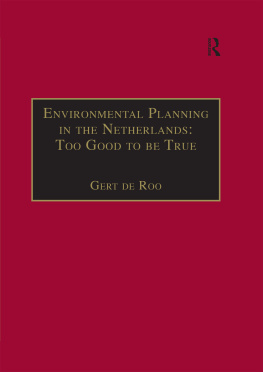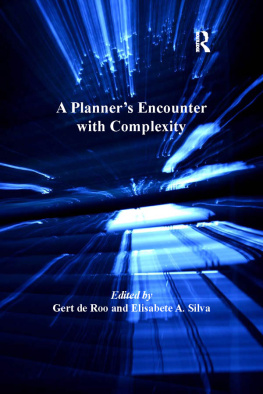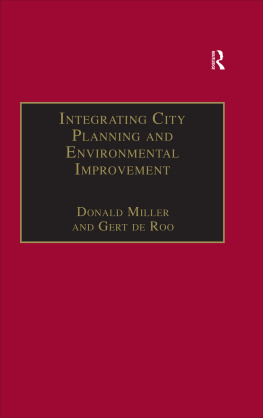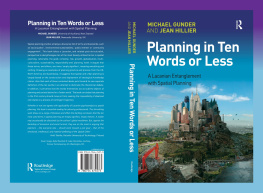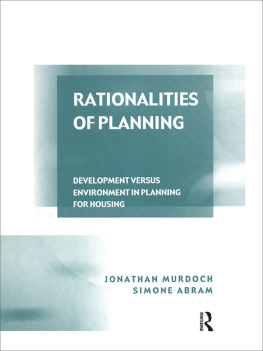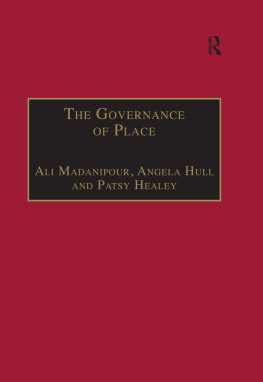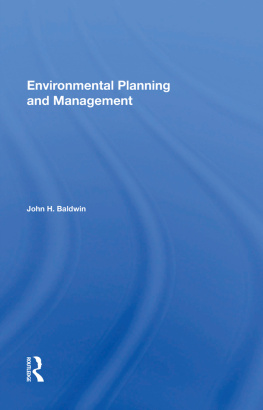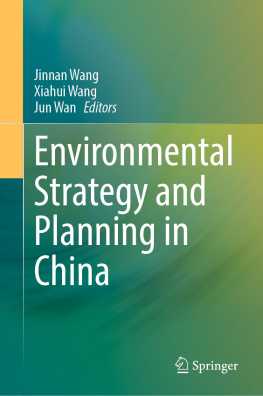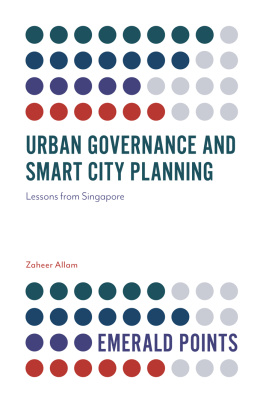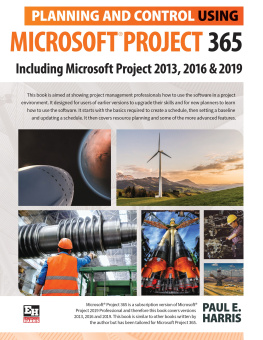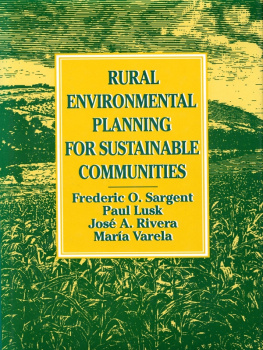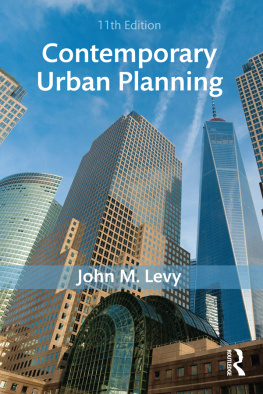Gert de Roo - Environmental Planning in the Netherlands: Too Good to Be True: From Command-And-Control Planning to Shared Governance
Here you can read online Gert de Roo - Environmental Planning in the Netherlands: Too Good to Be True: From Command-And-Control Planning to Shared Governance full text of the book (entire story) in english for free. Download pdf and epub, get meaning, cover and reviews about this ebook. year: 2003, publisher: Routledge, genre: Politics. Description of the work, (preface) as well as reviews are available. Best literature library LitArk.com created for fans of good reading and offers a wide selection of genres:
Romance novel
Science fiction
Adventure
Detective
Science
History
Home and family
Prose
Art
Politics
Computer
Non-fiction
Religion
Business
Children
Humor
Choose a favorite category and find really read worthwhile books. Enjoy immersion in the world of imagination, feel the emotions of the characters or learn something new for yourself, make an fascinating discovery.
- Book:Environmental Planning in the Netherlands: Too Good to Be True: From Command-And-Control Planning to Shared Governance
- Author:
- Publisher:Routledge
- Genre:
- Year:2003
- Rating:5 / 5
- Favourites:Add to favourites
- Your mark:
- 100
- 1
- 2
- 3
- 4
- 5
Environmental Planning in the Netherlands: Too Good to Be True: From Command-And-Control Planning to Shared Governance: summary, description and annotation
We offer to read an annotation, description, summary or preface (depends on what the author of the book "Environmental Planning in the Netherlands: Too Good to Be True: From Command-And-Control Planning to Shared Governance" wrote himself). If you haven't found the necessary information about the book — write in the comments, we will try to find it.
Environmental Planning in the Netherlands: Too Good to Be True: From Command-And-Control Planning to Shared Governance — read online for free the complete book (whole text) full work
Below is the text of the book, divided by pages. System saving the place of the last page read, allows you to conveniently read the book "Environmental Planning in the Netherlands: Too Good to Be True: From Command-And-Control Planning to Shared Governance" online for free, without having to search again every time where you left off. Put a bookmark, and you can go to the page where you finished reading at any time.
Font size:
Interval:
Bookmark:
Environmental planning in the Netherlands : too good to be
true. - (Urban planning and environment)
1. Environmental policy - Netherlands 2. Environmental policy
- Netherlands - Citizen participation 3. Environmental
policy - Netherlands - Evaluation
I. Title
[Planning per se, planning per saldo. English]
Environmental planning in the Netherlands : too good to be true : from command and
control planning to shared governance / Gert De Roo.
p. cm. (Urban planning and environment)
Includes bibliographical references and index.
ISBN 0-7546-3845-6 (alk. paper)
1. City planningEnvironmental aspectsNetherlands. 2. Regional
planningEnvironmental aspectsNetherlands. 3. Urban ecologyNetherlands. 4.
Environmental policyNetherlands. I. Title. IL Series.
HT169.N4R66 13 2003
307.12dc21
- List of Figures
- List of Tables
- Preface
- Conflicts, Decision-Making and Complexity in Environmental Planning
- PART A: ENVIRONMENTAL/SPATIAL CONFLICTS IN A CHANGING CONTEXT
- Environmental/Spatial Conflict in the Context of Environmental Encroachment
- A Concept of Over expectation
- PART B: COMPLEXITY AND PLURIFORMITY
- Complexity and Pluriformity
- PART C: INTERACTION AND CHANGING GOALS IN AREA-SPECIFIC ENVIRONMENTAL POLICY
- From a Technically Sound Policy to Policy Based on Shared Governance
- Pilot Projects in Integrated Environmental Zoning as a Source of Inspiration
- Environmental Policy of the City of Amsterdam
- Final Observations on the Link between Complexity and Decision-Making in Environmental Planning
Font size:
Interval:
Bookmark:
Similar books «Environmental Planning in the Netherlands: Too Good to Be True: From Command-And-Control Planning to Shared Governance»
Look at similar books to Environmental Planning in the Netherlands: Too Good to Be True: From Command-And-Control Planning to Shared Governance. We have selected literature similar in name and meaning in the hope of providing readers with more options to find new, interesting, not yet read works.
Discussion, reviews of the book Environmental Planning in the Netherlands: Too Good to Be True: From Command-And-Control Planning to Shared Governance and just readers' own opinions. Leave your comments, write what you think about the work, its meaning or the main characters. Specify what exactly you liked and what you didn't like, and why you think so.

